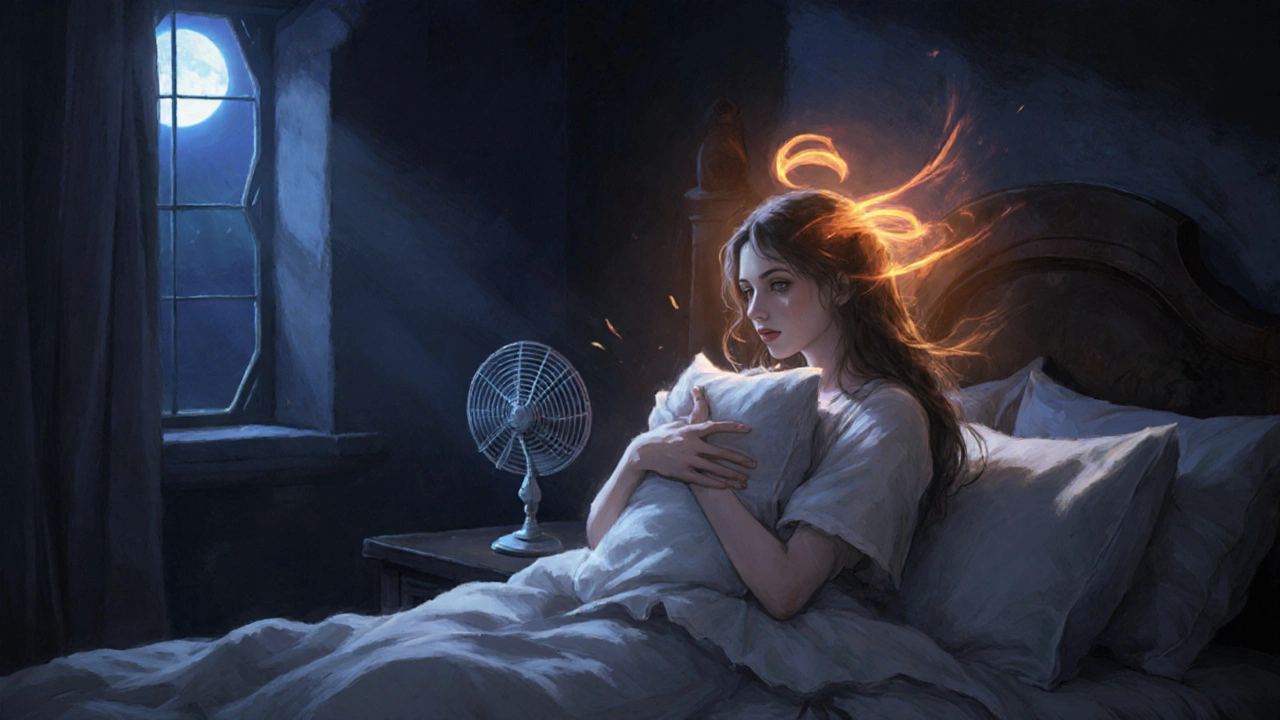Sleep Tips for Menopause
When sleep tips for menopause, practical strategies to improve rest during the hormonal changes of menopause. Also known as menopause insomnia remedies, these approaches help manage disrupted sleep caused by dropping estrogen and progesterone levels. You’re not alone if you’re waking up drenched in sweat, tossing and turning, or just feeling exhausted even after eight hours in bed. This isn’t just aging—it’s your body adjusting to new hormone levels that directly affect your brain’s sleep-wake cycle.
One major player is night sweats, sudden, intense hot flashes that drench clothing and bedding during sleep. They’re not just uncomfortable—they trigger cortisol spikes that make it hard to fall back asleep. Then there’s menopause insomnia, the persistent difficulty falling or staying asleep due to hormonal shifts. Unlike regular insomnia, this isn’t usually caused by stress or screen time—it’s biology. Estrogen helps regulate body temperature and serotonin, which affects melatonin. When estrogen drops, your body loses its natural rhythm.
Good sleep hygiene, daily habits that promote consistent, restful sleep. isn’t just about avoiding caffeine after noon. It’s about cooling your room to 65°F, wearing moisture-wicking pajamas, keeping a fan nearby, and ditching heavy meals before bed. A study from the North American Menopause Society found that women who practiced consistent sleep routines saw a 40% drop in nighttime awakenings—even without medication. And yes, magnesium and calcium supplements can help, but only if you’re actually deficient. Don’t guess—get tested.
Don’t overlook how anxiety and mood swings during menopause feed into sleep problems. When your mind races at 2 a.m., your body stays stuck in fight-or-flight mode. Simple breathing techniques—like 4-7-8 breathing—can reset your nervous system faster than pills. And while melatonin pills are popular, they don’t fix the root issue: hormonal imbalance. What works better? Light exposure in the morning. Ten minutes of sunlight before 9 a.m. helps your body relearn when to produce melatonin at night.
Some women find relief with acupuncture or yoga, especially restorative styles that focus on calming the nervous system. Others swear by CBD oil—though research is still mixed, many report fewer night sweats and less anxiety. The key is to test one thing at a time. Don’t pile on supplements, essential oils, and sleep trackers all at once. Pick one change—like cooling your bedroom—and stick with it for two weeks.
What you’ll find in the posts below aren’t generic tips you’ve heard a hundred times. These are real, tested strategies from women who’ve been there—along with clear comparisons of what actually helps versus what’s just hype. You’ll see how certain medications affect sleep, what herbal options work (and which ones don’t), and how to talk to your doctor about options that don’t involve hormones. No fluff. No guesswork. Just what works.
Menopause and Sleep: Practical Tips for Better Rest
Discover why menopause disrupts sleep and learn practical, evidence‑based tips-from cooling your bedroom to hormone therapy-to finally enjoy uninterrupted rest.






